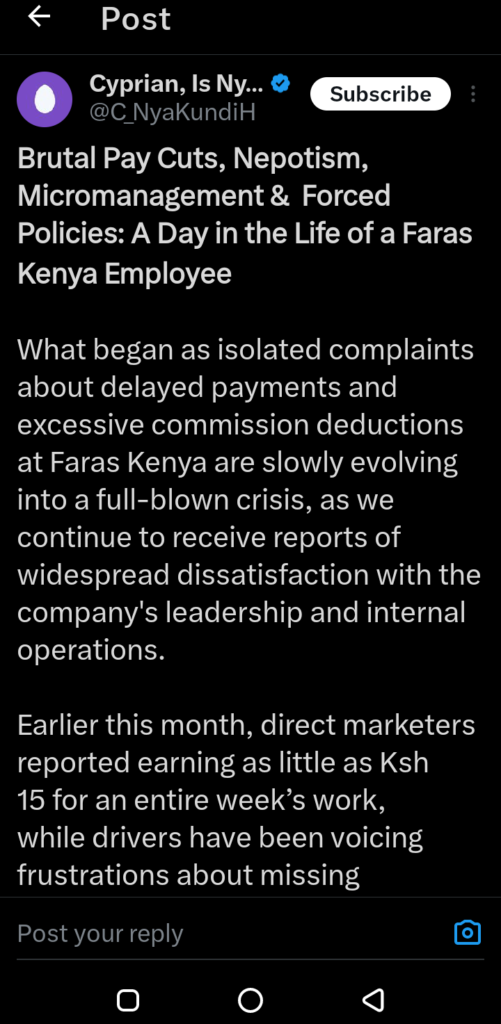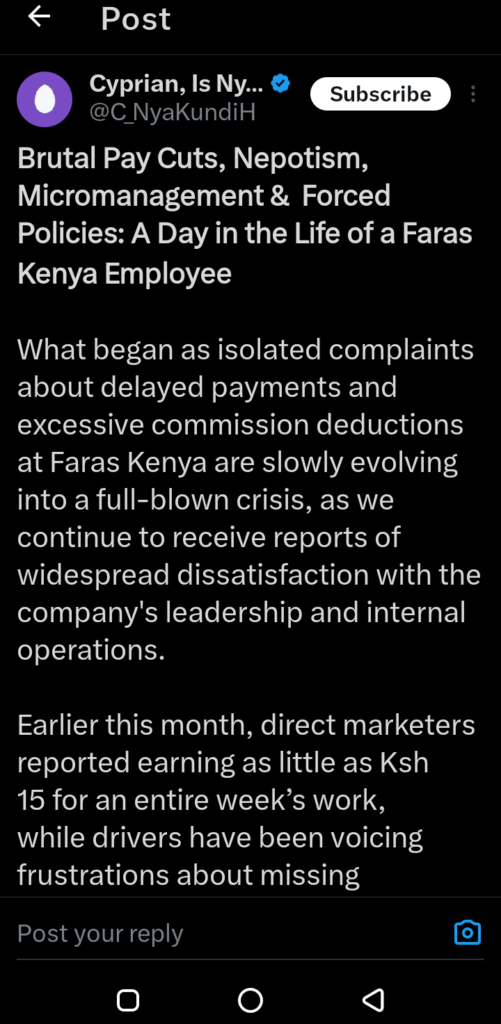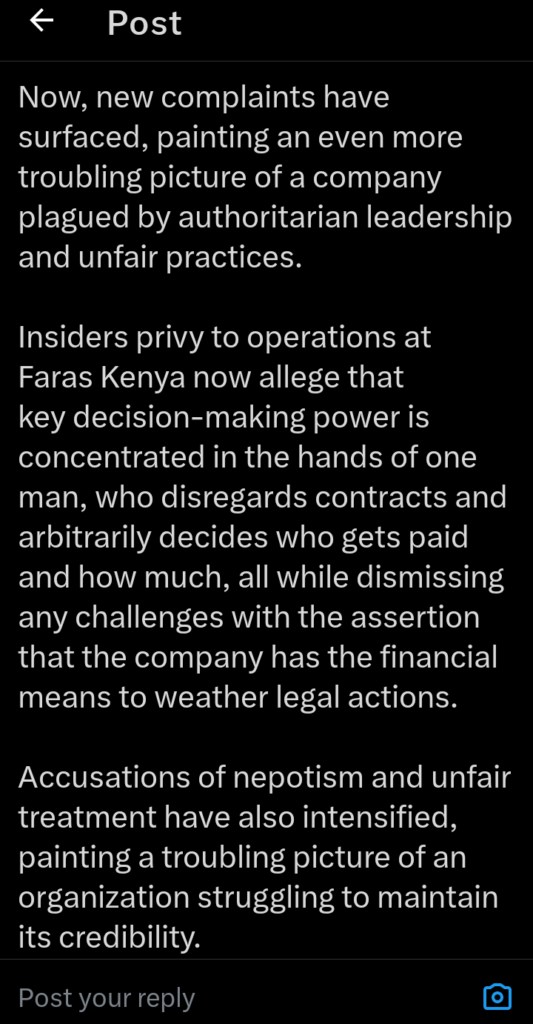Faras Kenya, once seen as a promising employer, is now under fire for widespread employee dissatisfaction.
Complaints, initially centered on delayed payments and excessive commission deductions, have grown into a full-blown crisis.
Reports from direct marketers indicate that some workers earned as little as Ksh 15 for a full week’s work.
Drivers have voiced frustration over missing payments and high commission rates.Now, new allegations suggest that the company’s leadership is contributing to an increasingly hostile work environment.

Insiders claim that all key decisions are made by one individual who has complete control over employee compensation.
This individual reportedly ignores contracts and decides arbitrarily who gets paid and how much.
Attempts to challenge these decisions are dismissed with the assertion that the company can easily afford to weather legal consequences.
This authoritarian management style, insiders say, has created an atmosphere of fear and frustration within the company.
Alongside these claims, allegations of nepotism have intensified.
Employees have reported that loyalty and hard work no longer seem to be valued. Instead, favoritism and connections appear to determine who is rewarded within the company.
Workers who have shown dedication and commitment are said to be undermined by unfair treatment, while those with personal connections to higher-ups seem to enjoy more lenient policies and special treatment.
One former employee, who worked with Faras Kenya when it first entered the Kenyan market in 2022, shared a disturbing account of their time at the company.
“The work environment was marked by micromanagement, excessive control, and punitive measures.

For example, being just a few minutes late resulted in salary deductions. These rules were unnecessary and demeaning,” the former employee said.
The strict policies were, however, not always applied equally, with certain employees enjoying exemptions from the same rules that the rest had to follow.
Another troubling incident involved the company’s decision to change banks twice during the employee’s tenure, which caused unnecessary inconvenience.
The final bank change, however, stood out. After being instructed to open a new bank account, the employee was handed a non-renewal of contract letter the very next day.
This sudden decision left the employee feeling betrayed, particularly after the sacrifices made and promises of growth that were never fulfilled.
The practice of issuing warning letters was also described as punitive rather than constructive. According to the former employee, these letters often felt more like harassment than legitimate feedback.
The HR department was seen as favoring management over employees, and its reluctance to address employee concerns further deepened the discontent.

Additionally, the introduction of random “Employee of the Month” awards seemed to be designed to create division.
These awards were often given to new employees, sometimes even those who had only been with the company for a month, while long-serving employees who had shown consistent dedication were overlooked.
This practice, according to employees, was a blatant example of favoritism, leaving many feeling undervalued and unappreciated.
The ongoing issues at Faras Kenya suggest that the company’s leadership is failing to uphold basic standards of fairness, professionalism, and respect for its employees.
Employees are increasingly questioning their loyalty to a company that seems more focused on maintaining a tight grip on power than ensuring fair treatment and growth opportunities for its workforce.
As the complaints continue to surface, the future of Faras Kenya’s reputation remains uncertain.





















Add Comment